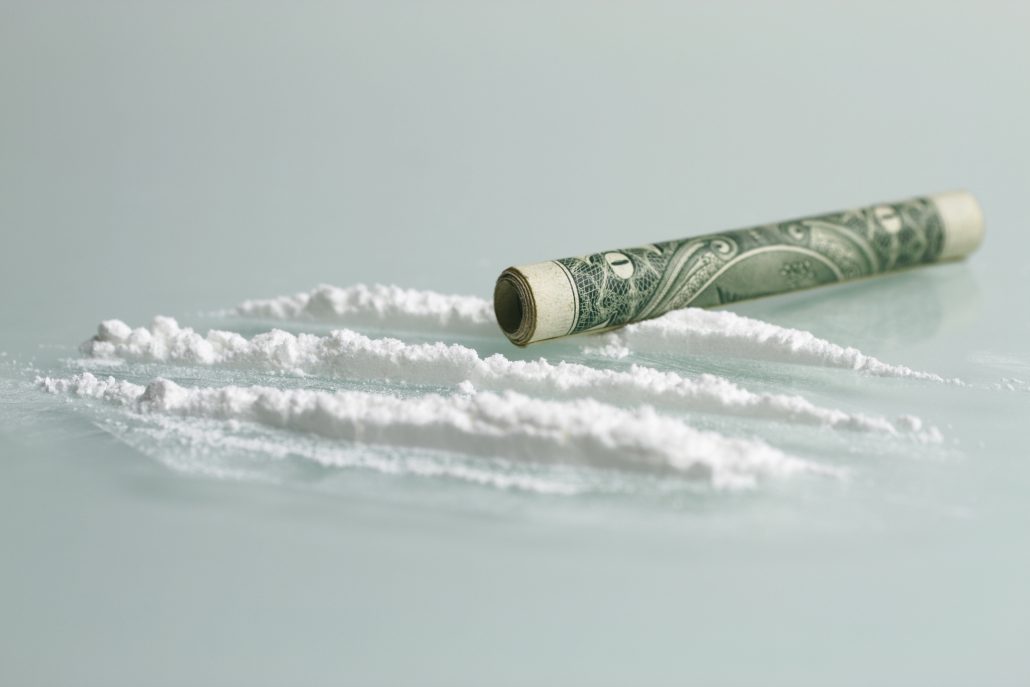25 Facts About Cocaine You Probably Didn’t Know

While the opioid crisis in America has reached public health emergency proportions, we still have to remember that there are a lot of other extremely dangerous drugs out there. Cocaine is a drug that has been around for a very long time, but with the rise in heroin and prescription drug abuse, people may have this idea that cocaine is no longer a real threat.
However, cocaine is still very dangerous and very prevalent around the world and here in the United States.
So how well do you know this drug? What do you know about its history? Do you know about the most common health risks?
Here are 25 facts about cocaine you probably don’t know.
Random History
-
Karl Koller (1857-1944)
This Austrian ophthalmologist experimented with cocaine as an anesthetic. The most infamous accounts are of Koller applying the drug to his own eye and then pricking it with needles.
-
Nervous Stimulant
Cocaine is the most powerful central nervous stimulant found in nature. The drug often gives users feelings of alertness, energy and even power.
-
Commercial Cocaine
In 1885, a U.S. manufacturer sold cocaine commercially. They advertised that cocaine would “make the coward brave, the silent eloquent, and render the sufferer insensitive to pain.”
Side note- The manufacturer even included a syringe in the packaging.
-
Drugged on the Job
According to some historians, white business owners in the early 1900s would encourage their African-American employees to use cocaine in order to boost their productivity.
-
First Addicted Physician
In 1884, famous American physician William Stewart Halsted performed the first surgery using cocaine as an anesthetic.
Side note- he shortly afterward became the first cocaine-addicted physician on record. Surprising?
-
Powdered Money
According to one study, trace amounts of cocaine can be found on 4 out of every 5 dollar bills. However, cocaine is a fine powder and is easily spread around, meaning the bill wasn’t necessarily used as a snorting straw.
-
Nazi Addicts
Historians say that Hitler was addicted to cocaine, among many other drugs including methamphetamines. Nazis often used drugs as a means of stimulation. Many believe all those stimulants helped ignite his ranting paranoia.
Prevalence
-
Second Most Popular
Cocaine is the second most commonly used illicit drug in the United States. The first is marijuana.
-
Emergency Visits
In 2004-2007 cocaine overdose caused 31% of visits to the emergency room.
-
First Timers
Every day, 2,500 Americans try cocaine for the first time.
-
Worldwide
Over 200 million people use illegal drugs worldwide. 21 million of those people use cocaine.
-
American Addiction
Even though the United States only makes up less than 5% of the world’s population, the country consumes approximately 37% of the world’s cocaine.
-
Illicit Industry
The illicit cocaine industry earns between $100 and $500 billion each year.
-
Scotland Snorts
Scotland has the highest cocaine use out of any other country in the world. One out of every 40 Scots uses cocaine, which is approximately 2.4% of the population.
-
Babies Born Addicts
Every year in the United States more than 400,000 babies are born already addicted to cocaine.
Health Risks
-
Fast-Acting Addiction
An estimated 10% of all people who begin using cocaine will immediately progress to serious, heavy.
-
Sharing is Hurting
Sharing straws to sniff cocaine can actually spread several blood-borne diseases, including hepatitis C.
-
Mental Health
Cocaine users tend to have higher rates of certain mental health conditions, including:
- Antisocial personality disorder
- Depression
- Anxiety
- Multi-substance abuse
When compared to the general population.
-
Perfect for Heart Attacks
Come describe cocaine as the “perfect heart attack drug” because it causes so many harmful effects, including:
- Increased blood pressure
- Stiff arteries
- Thickening of heart muscle walls
Even worse is that these irregularities persist long after the effects of cocaine have worn off, even for those who aren’t chronic users.
-
Bruxism
Chronic cocaine use can cause a condition called bruxism, which is grinding of the teeth involuntarily.
-
Drug-Induced Decay
Cocaine frequently causes dehydration and dry mouth. This leads to many users having less saliva in their mouth, which can then lead to tooth decay.
-
The Nose No’s
Cocaine can also destroy the cartilage separating a person’s nostrils after continued use.
-
Deadly Influence
The direct pharmacological effects of the cocaine are often only credited with 1/3 of the deaths associated with cocaine use. The majority of deaths in connection with cocaine are by:
- Homicide
- Suicide
- Motor vehicle collisions
Meaning a lot of people die as a result of the mind-altering properties of cocaine and risk behaviors associated with the drug.
-
Lethal Mix
Consuming cocaine with alcohol is one of the deadliest drug combinations there is.
Now you may be wondering… what is the last fact going to be? You might get through this list knowing less than you expect about the powerful illegal stimulant…
NUMBER 25…
You can quit because there is help for you. Cocaine addiction can be crippling and feel impossible to overcome. But with safe medical detox, followed by effective and holistic treatment options, you can build a lasting foundation for recovery from cocaine addiction.

